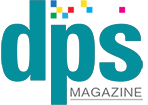11.1.18
What can be achieved with the state-of-the-art multicolor techniques? What quality levels can be obtained in multicolor proofing and separation? These questions were the focus of the first Multicolor Forum, organized by Fogra in Munich. In a “shootout,” Fogra provides the nine leading technology providers the opportunity to compete in five different disciplines. The vendor-neutral event was aimed at obtaining useful results without selecting a winner.
Nine Participants, Five Disciplines – and Demanding Tasks for the Industry Leaders
Creating a characterization for multicolor profiles, production ECG proofs, and spectral prediction of overprints were handled by GMG with bravura. With regard to spectral prediction, the most challenging task, GMG was able to give full rein to the strengths of its patented GMG OpenColor spectral overprint model and deliver by far the best results. The prediction was the closest to the printed result. Similarly, in the separation of spot colors as well as the Adobe RGB images, GMG achieved an excellent result through its approach based on maximum preservation of the overall impression. In respect of proofing, GMG produced outstanding quality. GMG ColorProof, in fact, led the field in conjunction with GMG ProofMedia premium OBA – both in terms of the measurements obtained by using a media wedge and from a visual perspective.
Following the evaluation and presentation of the results, Fogra drew the following conclusion: “Multicolor has come of age.”
At the top of the premier league: GMG OpenColor and GMG ColorPlugin
For GMG, its excellent performance in multicolor scenarios was no surprise. After all, a patented spectral prediction model is at the heart of the multi-award-winning profiling solution GMG OpenColor, which has set new quality standards for color management in the field of packaging printing. Compared to other color systems like CIELab, spectral modeling offers unprecedented accuracy in the creation of color profiles. Due to the combination of characterization data with process parameters for print production, it simplifies the creation of multichannel profiles, which even precisely simulate overprint effects involving spot colors. A further benefit is that only little information is needed to create profiles, such as print control strips, solid-color fields, and screen fields.
Based on the same characterization, separation profiles can be produced for the GMG ColorPlugin for Adobe Photoshop as well. This allows RGB separations to be performed into multicolor spaces up to 7C. As a result, image data can be flexibly adapted to the printing process in use. Color reproduction is thereby maintained and the extended color space fully leveraged. Particularly helpful is the soft-proof preview of the separation, which can be switched on or off at any stage of image processing. This allows users to directly simulate the final result at any stage of editing. With the ColorBoost feature, images can also be given a more saturated and vivid look.



